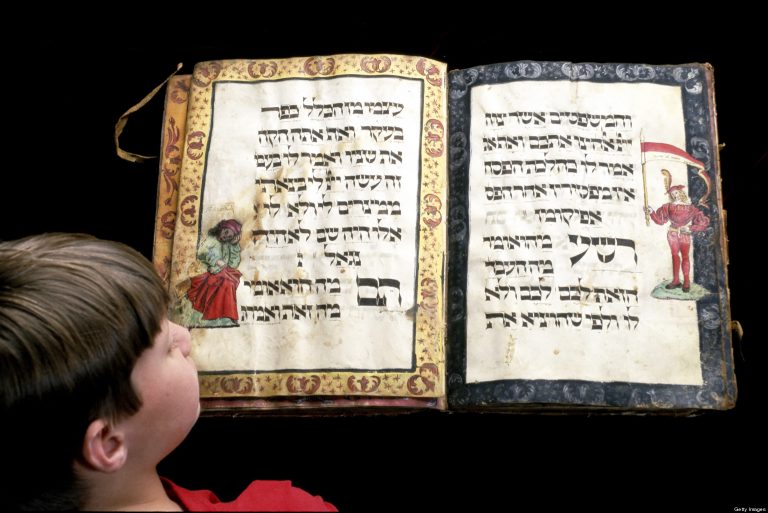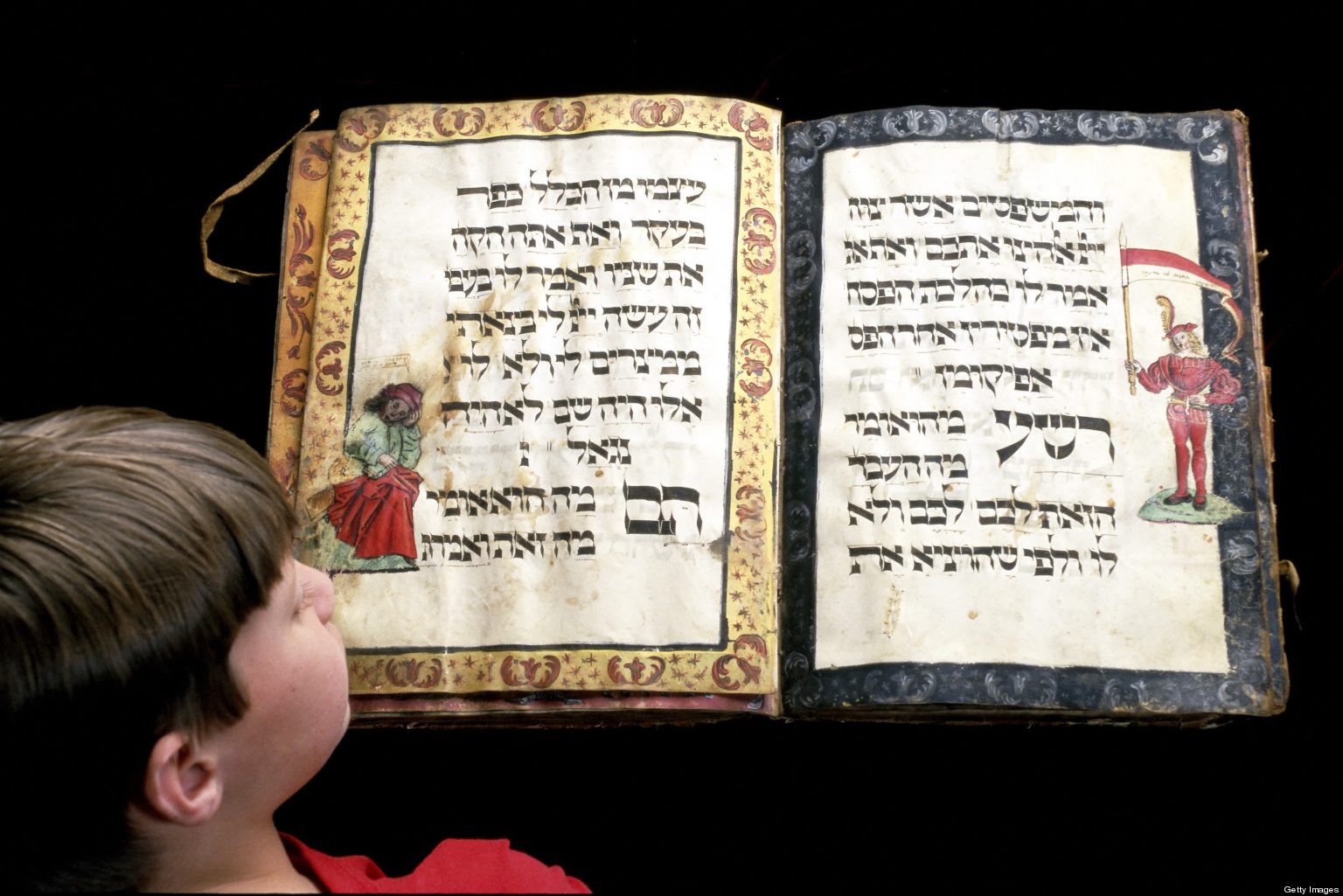We are rapidly approaching the night of the Seder. On that night, the Jewish People observe a unique command, the command of communication, of education, “haggadah.” In Shemot 13:8, we find, “And you shall tell your child on that day as follows: ‘Because of this, HaShem did for me, when he took me out of Egypt.’”
And we find the explanation of this in the Haggadah as referring to the re-enactment of the Exodus, with Matzah and Marror before one on the table.
It is interesting to note that the term “Haggadah” is used mainly in another context; namely, the communication of testimony by witnesses. And indeed, the Jewish People are considered G-d’s witnesses, as the Prophet Yeshayahu pronounces three times within two chapters of the Section of his Book associated with Comfort and Redemption.
 In Yeshayahu 43:10, we find, “You are My Witnesses, says G-d, and My servants whom I have chosen, in order that you should know, and believe Me, and understand …before Me there was no other G-d formed; Neither shall there be any after Me.”
In Yeshayahu 43:10, we find, “You are My Witnesses, says G-d, and My servants whom I have chosen, in order that you should know, and believe Me, and understand …before Me there was no other G-d formed; Neither shall there be any after Me.”
And again, in Yeshayahu 43:12, “I have told [‘hi-gadeti’ – same root as ‘haggadah’], and I have saved, and I have announced, that there is no no strange god among you; Therefore, you are My Witnesses, says the L-rd, and I Am the Almighty.”
And yet one more time in Yeshayahu 44:8, “Fear not, do not tremble, have I not announced unto you of old, and declared it, that you are My Witnesses. Is there a G-d beside Me? (And you answer) ‘There is no Rock; I know of none other.’”
In the Talmud, we find an interesting point of theoretical analysis: How do witnesses work in Jewish Law? Let’s first look at examples of the use of witnesses. Witnesses are used basically in three ways:
1. As part of court proceedings; for example, to testify that one Jew assaulted or killed another, or that a Jew violated one of the prohibitions of Shabbat, whereupon the Court would take the appropriate action according to Jewish Law
2. As part of a ritual process; for example, when a witness testifies that he has seen the New Moon before the Sanhedrin, the Jewish Supreme Court, and the Sanhedrin proclaims the beginning of the New Month.
3. As part of certain inter-personal ceremonies, such as a formal engagement, or “Kiddushin,” of a “Kallah,” a Bride to a “Chatan,” a Groom.
The point of analysis is whether the function of the witnesses is merely to communicate the facts of an occurrence. Or are they involved in the event itself as “participants”; say, with regard to an engagement, without the witnesses, there is simply no engagement.
There are many aspects of the “testimony of witnesses” that suggest parallels with the re-telling of the story of the Exodus. Let’s begin with the RAMBAN, who basically asks why did the Ten Commandments not begin with G-d saying “I am the L-rd your G-d Who Created Heaven and Earth,” instead of “I am the L-rd your G-d Who took you out of the land of Egypt, from the House of Bondage”? Would not the historical event, albeit of tremendous importance, not pale before the Creation of the entire Cosmos?
He answers that the reason HaShem doesn’t introduce Himself as the Creator is that for that cataclysmic event, involving Black Holes or some as yet undreamed-of mechanism, there were no witnesses! Whereas, concerning the Exodus, there were millions of witnesses, who handed down the Tradition from generation to generation in accordance with the Command, “You shall tell your child.”
The Haggadah states, “In every generation, an individual is obligated to view himself as if he himself left Egypt, for He redeemed not only our ancestors but ourselves as well, as it is said, ‘And He took us out of there, in order to bring us to give us the Land that He swore to our fathers.’”
“Therefore, we are obligated to thank and to sing in gratitude, and to praise, to glorify, to elevate, to declare the greatness of, to announce the righteous beauty of, and to celebrate the Eternity of – the One Who did for us and for our fathers all these miracles: That He took us from Slavery to Freedom, and from Enslavement to Redemption, from Suffering to Joy, from Mourning to Celebration, and from Thick Darkness to Great Light, and we will sing before Him the “Hallel:”…
The question is, “What does the Haggadah mean, that we too were redeemed?” Does it mean only that had our ancestors not been redeemed, we would still be slaves in Egypt (if we, and, for that matter, they were still viable historical entities).
Or does it mean something more – something like what the Midrash says concerning “Maamad Har Sinai,” the Revelation at Sinai, that all souls – past, present, and future – of the Jewish People were actually present there? And Moshe says as much, “And it is not with you alone that HaShem has established this Covenant, but with all Jews, those present and those no longer and not yet present.”
Similarly, at the cataclysmic event of the Splitting of the Sea, every Jewish soul – past, present and future, including ourselves, were present. And that is how we can testify as to its occurrence.
One argument in favor of saying that we were all eye-witnesses to the event is that otherwise we would be (in a somewhat far-fetched stretch of the Halachah), “Edim Zomemim,” as it were, conspiratorial witnesses, testifying to our child about events that happened at one time and place while we were in a different time and place.
Perhaps the best way for us to view our role in Jewish History as witnesses, is that on the Night of the Seder, each family in each generation is raised to the level of a link in a golden necklace that has no beginning and no end, and it can therefore remember vividly all the events that occurred to our People , including the transcendent events of the Exodus and our receiving the Torah from heaven.
